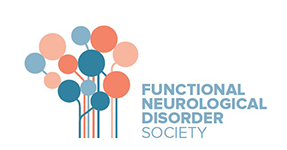About
Purpose
The objective and mission of the Society shall be to:
- Improve the diagnosis and treatment of patients with functional neurological disorders; to operate exclusively for scientific, scholarly and educational purposes
- Encourage and advance scientific research pertaining to functional neurological disorders
- To provide forums, including International Congresses, online educational portals, medical journals and scientific symposia, open to a multidisciplinary audience.
- Increase awareness among healthcare professionals and the public about functional neurological disorders
- Share ideas and to advance the related clinical and scientific disciplines
- Encourage interest and participation in the activities of the Society among healthcare professionals and scientists
- Collaborate with other related professional, patient-led and other lay organizations
Mission and Goals
The Functional Neurological Disorder Society is a professional society of healthcare professionals, scientists, and students who are interested in functional neurological disorders
- To disseminate knowledge about functional neurological disorders by:
- Providing educational programs for clinicians, scientists and the general public designed to advance scientific and clinical knowledge about these disorders
- Sponsoring International Congresses and Symposia
- Collaborating with other international organizations and lay groups
- Publishing journals, videos, and other collateral materials committed to high scientific standards and peer review
- To promote research into causes, prevention and treatment of Functional Neurological Disorders by:
- Using the Society's influence and resources to enhance support for research
- Facilitating the dissemination of information about research
- Encouraging the training of basic and clinical scientists in functional neurological disorders
- For the purposes of favorably affecting the care of patients with Functional Neurological Disorders, the Society will provide expertise, advice and guidance to:
- Regulatory agencies to assist them in the approval process of safe and effective therapeutic interventions
- The public (media) and patient support groups by informing them of new research and therapeutic advances
- Governments to assist them in the development of policies that affect support of research and patient care
- Educational efforts to assist in developing standards of training in the specialty
The Beginning
In September 2017, Mark Hallett, Jon Stone and Alan Carson organized a 3-day international meeting for health professionals on FND in Edinburgh on the back of a volume of the Handbook of Clinical Neurology on FND[1]. 550 delegates attended and there was enthusiasm for further similar meetings in the future.
We were very grateful at that meeting for the support of the International Parkinson and Movement Disorder Society (MDS), the American Epilepsy Society, NIH, NIMH and messages of goodwill from the American Neuropsychiatric Association and the British Neuropsychiatric Association.
All these organizations, and others, have been instrumental in improving research, teaching and awareness of functional/psychogenic disorders in neurological settings, especially the MDS, which sponsored two previous meetings on functional movement disorders and has an FND workgroup, the ILAE, which has a task force on psychogenic non-epileptic seizures, and the ANPA, which is drawing up new guidelines for FND.
The field matured and covers a wide range of health disciplines including neurology, psychiatry, psychology, physiotherapy, occupational therapy, rehabilitation medicine, ophthalmology, neuro-otology and others.
We plan to organize further meetings as a place to bring together this diverse group and think that the time is right for a new organization to bring together those interested in these common and disabling disorders.
[1]M. Hallett, J. Stone, A. Carson (eds), Functional Neurologic Disorders: Handbook of Clinical Neurology (Volume 139), Elsevier, Amsterdam, 2016.
